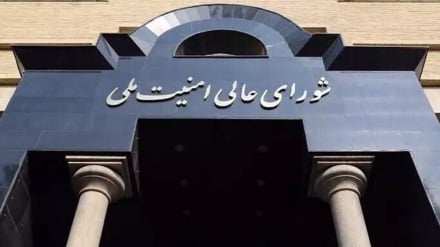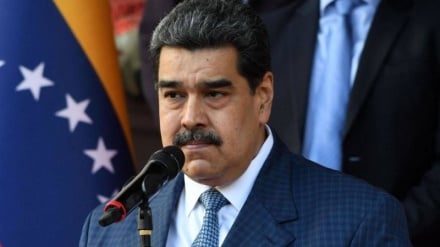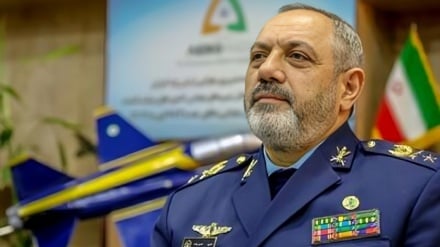The crisis in Venezuela: Sign of a regime change addict
Here are some of the facts and blatant lies we know so far about the ongoing crisis in Venezuela presented in an article titled “The crisis in Venezuela.” Now we have more about the story.
Relying on doubtful interpretations and in breach of international law, the United States and some other countries have recognized opposition leader Juan Guaidó as Venezuela’s new president. In response, President Nicolas Maduro has broken off diplomatic ties with Washington. All the while Venezuelan army chiefs have confirmed their loyalty to democratically elected President Maduro, who has denounced a “coup d’état in development” and received the support of Russia, China, Iran, Turkey, Bolivia, Mexico, and the United Nations Security Council.
Recognizing the legitimate government there, these governments have helpfully ripped off the fig leaf that the Trump administration and other partners are using to justify their unlawful interference in Venezuela. The constitutional argument that Maduro isn’t really president is nothing more than a fig leaf for regime change. The US policy is, in practice, to seek regime change in Venezuela. They just won’t say so directly.
The US pursues and promotes regime change in Venezuela because of its regime change addiction. That’s why the opposition has found a willing and important ally in the United States. However, the US government does not have the right to interfere in Venezuela’s internal political affairs. The long history of US meddling in Latin America is a shameful chapter that the UN should want to see closed, because the people in the country that “benefit” from regime change will pay the greatest price of all.
The crisis has opened the door for the Trump administration to squeeze the vital flow of petrodollars to the Maduro government - which counts on oil for 95 percent of its export earnings. Trump plans another illegal and illegitimate move to send the proceeds from purchases of Venezuelan oil to foreign accounts that could be set up and controlled by Guaidó. Diverting oil funds to Guaidó could have a huge impact on the Venezuelan economy. Not that Trump cares.
To many observers, the aggressive gambit by the Trump administration and partners will only make Venezuela’s predicament worse. In doing so, the US and partners have taken a highly visible and risky step that will be difficult to undo, with many unpleasant, unpredictable, and unforeseen consequences. The resulting crisis could morph into the worst humanitarian disaster and instability in memory, and inevitably spill across borders.
The opposition’s strategy, conducted in coordination with Washington, is clearly for regime change, but it will not work. The Maduro administration continues to have the support and recognition of its people, and the roots of US support for liberal democracy in Venezuela turns out to be shallow. The Iraqis and the Libyans and the Yemenis and the Syrians and the Afghans know only too well: when the US invades, open-ended chaos and terrorism is much more likely to follow than stability - let alone democracy.
Given the scale of US interference, Venezuela is likely to remain unstable for a long time. The immediate challenge for its citizens and their leaders, as well as for the international community, is to contain the impact of this American-instigated decline. For all the economic problems they have experienced, the Venezuelan people have never stopped supporting their government. Most of them are national and grass-roots affairs, but they show a people with the will to fight for themselves and determine their own fate.
Long story short, this new saga serves as further evidence that the foreign policy of President Trump is no longer unpredictable and his destructive actions in Venezuela are not shocking or surprising at all. Quite the opposite, his positions to recognize Guaidó and promote regime change in Caracas are all consistent with the United States' long-time known strategy as well as the worldview Trump has publicly espoused since his election. For the first time, it is possible to identify a singular Trump administration foreign policy. This policy consists of a preference for authoritarian regimes over democracies, a general disregard for human rights and the rule of law, and the promotion of unilateralism at the expense of world peace and stability.
The United States government, like a giant serpent, is at it again, this time in Latin America. There the Trump administration wants to wreck Venezuela by building consensus in an anti-government coalition which will prove to be an uphill battle. It wants to fight by regime-change rules; it is going to intensify anti-Maduro push because ‘all options are on the table’; it wants to focus on diverting Venezuela’s oil money to opposition; and it won’t be for democracy.
US Secretary of State Mike Pompeo headed to the UN Security Council Saturday with a very clear agenda: trying to sell the 15 members on recognizing Juan Guaido as Venezuela’s president, instead of Nicolas Maduro. This didn’t happen uniformly. This was part of an ever-escalating Trump administration plan to try to sell the world on Venezuela’s regime change. Some US allies are also on board, but there are still many countries that are not.
It’s to the point where President Trump says “all options are on the table” against Maduro, with the immediate focus being some way to divert Venezuela’s money from oil exports to Guaido, instead of the Maduro government. John Bolton, yes John Bolton, is also on board, setting that out as a priority, though he has conceded that officials are not clear yet how that will be accomplished.
Citgo, Venezuela’s main foreign energy asset, is already gearing up for a fight, envisioning attempts at the company being taken over on behalf of the Guaido government, or otherwise trying to hijack their revenue stream before it gets back to Venezuela.
Into the bargain, Elliott Abrams, a warmongering neoconservative figure has been named as the Trump administration special envoy overseeing regime-change policy toward Venezuela. Abrams, a fiercely pro-Israel figure who supported a military coup attempt in Venezuela in 2002 and the US invasion of Iraq, is one of several special envoys Pompeo has brought on board to impose regime change in Caracas. He takes on his role at an unusually volatile time in US-Venezuelan relations.
All the same, President Trump is not in a position to announce he no longer recognizes the legitimacy of the elected government of Nicolas Maduro, much less consider opposition leader Juan Guaido to be the country’s “interim president” - or steal Venezuela’s oil money. It is up to the people of Venezuela and they have already done that. They have elected Maduro as their president and he has done the right thing to cut off diplomatic ties with the US.
More so, the people of Venezuela know fully well how covert and overt operations by consecutive US administrations, whether paramilitary or not, have helped to destroy democracy around the world. By means of these operations, the US has replaced popular governments with brutal, murderous, US-controlled military dictatorships that torture and kill their own citizens. Whether they involve paramilitary action, political intervention, propaganda campaign or other kinds of deceptions, the new but not-so covert operations in Venezuela are all designed to benefit US-based multinational corporations by expropriating its national resources as well. These unlawful operations will eventually hurt people because America's foreign policy toward Venezuela is a reflection of its wickedness toward these people.
By now it should be clear that the greatest threat to world peace is actually waging a war on Venezuela’s independence and democracy. In breach of international law and UN Charter, the US administration seeks to overthrow the democratically elected government of Venezuela to serve its own illicit interests. The US has an appalling record of violence and aggression dating back to its founding, but especially since the illegal invasion of Iraq and Afghanistan, and is not fit to preach the Venezuelans on democracy.
They know and the whole world knows how the US system of global hegemony achieved through military dominance and violence results in horrendous consequences for innocent people worldwide as well as potentially destabilizing the planet in even worse ways. Given the immense problems in Venezuela and the fact that both major political parties on the Capitol Hill are committed to regime change, this is not the moral and wise thing to do.
The conclusion is obvious. The Trump administration’s support for Juan Guaido as Venezuela’s president will only generate resentment and violence in return, and quite literally increase the risk for destabilizing the country. All decisions and policies in Venezuela are usually on the ballot box. Even the UN Security Council opted to emphasize that during its Saturday session by expressing support for elected President Maduro. Venezuela’s domestic issues should always be allowed to be on the ballot box if Americans educate themselves on them.
EA/ME


